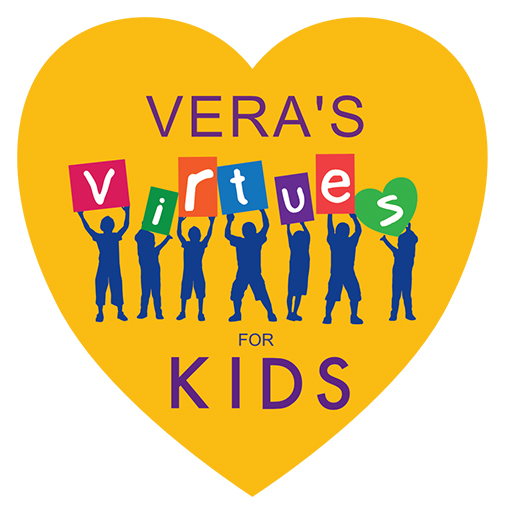Frequently Asked Questions
Veras Virtues For Kids
Why?
Why now? Why care about virtues?
The Covid-19 pandemic forced people to think, feel and act differently. Humankind is ready to replace:
- High Tech, Low Touch with high touch.
- Excessive screen time is associated with inadequate sleep, rage and anger, brain development, reduced social skills, and depression or adverse childhood experiences (ACE).
- Violence with love and unity
- the highest prevalence of bullying is in 3rd grade where 22% reported bullying)
- Believing cheating in school is ok to being honest
- Discussing the problem is not enough; this is an internal issue that virtue skills training can change.
What?
What is a virtue?
A virtue is a gift of character. It is a quality or an attribute that sets a standard of excellence for what we say and do. Examples are truthfulness and courtesy.
Can virtues be taught?
We can be taught to nurture the virtuous qualities we are born with. For example, adults and children need to be told what their behavior looks like, not to please, but to honor their nature. (Linda Papov, Virtues Project International)
- One approach is to give a virtues acknowledgement. Watch the video in VerasVirtuesForKids.com.
Another strategy is to model the behavior you want to see. (Moral excellence comes about as a result of habit. We become just by doing just acts, temperate by doing temperate acts, brave by doing brave acts.” Aristotle.}
Are virtues and values the same?
No. Virtues are absolute or fixed qualities of the human spirit. Values are relative and may change over time and vary among different cultures. For example, being on time is not valued the same in every culture.
How?
How were the virtue words in this program selected?
Three of sixty-six words come from the Virtues Project International and are supported by the world’s sacred traditions. The additional three words were considered important in developing positive personal behavior and social skills:
- Attentive: To listen closely and reply well is the highest perfection we are able to attain in the art of communication. (François de La Rochefoucauld)
- Inquisitive. The important thing is not to stop questioning. Curiosity has its own reason for existence. (Albert Einstein)
- Knowledge is praiseworthy when it is coupled with ethical conduct and virtuous character; otherwise it is a deadly poison, a frightful danger.… (Abdul’Baha)
How Do I Get Started?
Purchase Learning Packages!
There is something for all ages including a gratutude journal for teens and adults
Read and share our articles!
Success stories about virtues and special offers from the company committed to the well-being of all children
Articles and Resources
Resources to strengthen the core aspects of our being – mind, body,
and spirit

